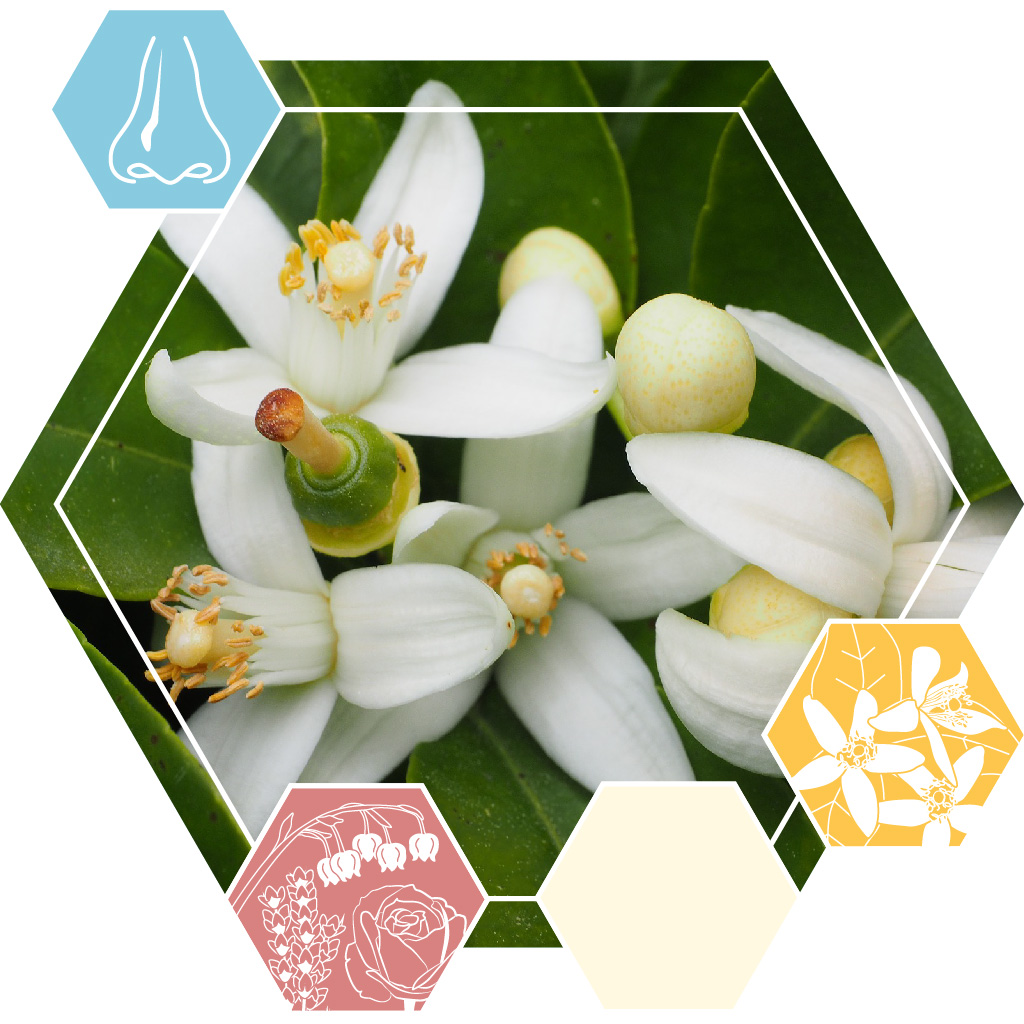Fragrance raw material
Description
Methyl anthranilate is an aromachemical for use in, for example, perfume, cosmetics, soap, and air fresheners.
Attention!
Please read all information below and the general product information before purchasing.
Not intended for use in food, vape liquids or other internal use.
Intended to be mixed with other fragrances: on its own the scent can be dull or even unpleasant.
Do not use undiluted on the skin: it is a raw material, not a finished product.
Use
Methyl anthranilate has a floral scent reminiscent of orange blossom. The scent is strong and can be unpleasantly overpowering. Making a dilution of, for example, 10% can therefore be useful, for example use DPG or TEC. Typical use is in various floral accords, in addition to orange blossom, especially gardenia, jasmine and tuberose. You usually use between 0,1% and 5% of this substance in the fragrance composition. It combines well with citrus, but also with leather scents, honey and musk. In addition to the typical orange blossom note, it also adds something animalic to the scent. In perfumes it is mainly a heart to base note, it is stable in most products, including soaps.
Store in a cool, dry, dark place and out of the reach of children.
Properties
Methyl anthranilate is an almost colourless to orange-red liquid at room temperature. The substance has a fairly long shelf life. It occurs in nature, but for use as a fragrance the synthetic version is used.
This substance is usually supplied as a liquid, even at temperatures below the specified melting point of the substance. In certain circumstances or in certain batches the substance may be solid.
With aldehydes this substance forms so-called Schiff bases. This will also happen in a perfume or fragrance composition, which can cause the scent to change as it matures. Schiff bases are often strongly coloured, the same applies to products with methyl anthranilate: these often discolour over time.
Technical details
Density: 1,166
Log p: 1,9
Vapour pressure: 1,6 Pa
Melting point: 24 °C
Boiling point: 239 °C
Molar mass: 151
Packaging
The 10 and 50 ml packaging is made of brown glass with a black cap. The 250 g package is made of aluminium with a white cap. Closing is always with regular caps, for dosing small quantities we recommend the use of plastic pipettes.
Sustainability
This fragrance is made from petrochemicals such as petroleum. The degradability in the environment is reasonable.
Dangers
Methyl anthranilate is classified as a hazardous substance, with the following characteristics:
WARNING
H319 - Causes serious eye irritation.
An allergic reaction to this substance is unusual, but cannot be ruled out.
Codes
Item number: 23022
Dutch name: Methylanthranilaat
EC number: 205-132-4
EU CAS number: 134-20-3
CAS number TSCA: 134-20-3
FEMA number: 2682
INCI: METHYL ANTHRANILATE




